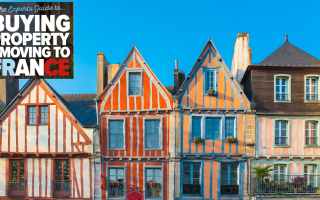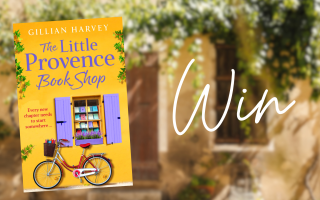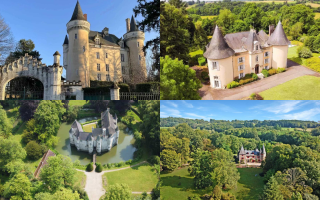10 ways to save money when buying in France
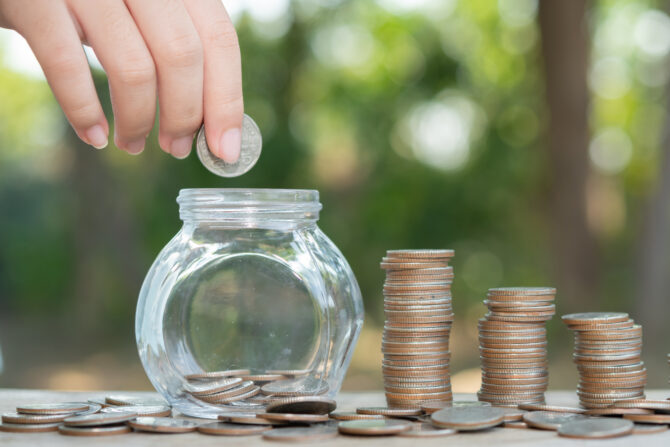
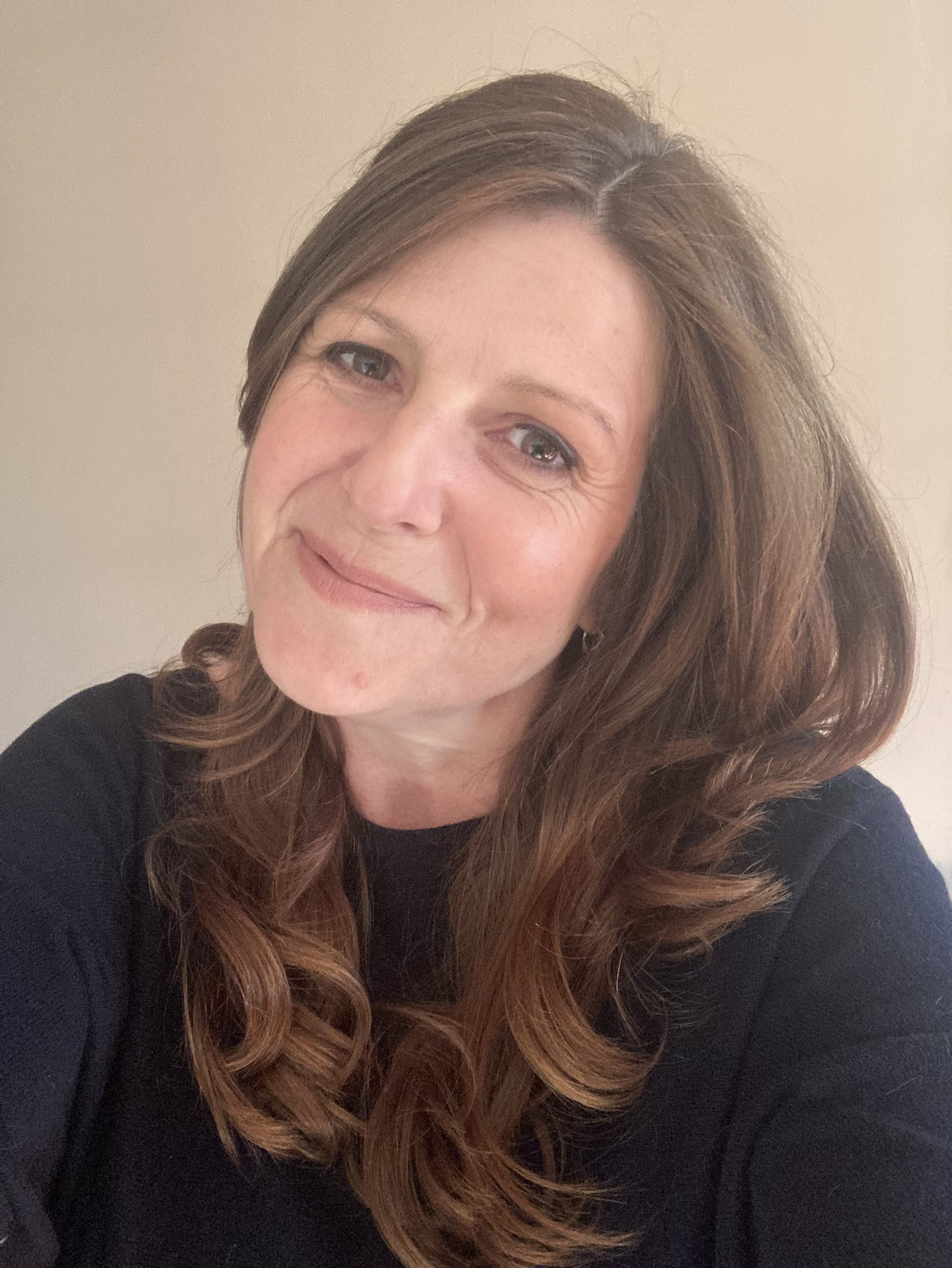
Karen Tait suggests 10 ways to save money on buying and owning a French property…
Buying a French property is likely to be one of the biggest financial outlays you will make in your life. Saving money here and there during the process will help to ensure you make a sound investment and may even free up some euros to make improvements to the property or spend while you’re there. Here are a few ways you can be canny with your cash.
PAY THE RIGHT PRICE
While you can usually rely on your estate agent to advise you on local prices, it makes sense to do your own research first. With so many online property portals and agency websites. it’s easy to check out values in the areas you’re interested in. Compare prices of similar properties to identify areas where you can find better deals.
You may be expecting differences between regions Paris or the French Riviera will be much more expensive than a rural backwater, of course- but you may be surprised how much prices vary from village to village within a small area.
Locations closer to the coast or a big city or popular town will be more pricey, or even with easy access to the motorways, a TGV station or an airport, as will touristy areas.
Once you’ve found a property, don’t be afraid to negotiate on the price. Be mindful that manners matter here as they do everywhere else: you don’t want to offend the seller but a reasonable offer is usually welcomed, especially if the property has been on the market for a while. You may be able to use your market research on pricing here.
Cash buyers will naturally be in a favourable position, but having a mortgage offer in principle will also show you’re a serious purchaser.
Be prepared to walk away if the price is not right, but don’t cut off your nose to spite your face! We’ve all watched those TV property programmes where people lose out on their dream property by being so determined to get a good deal.
CONSIDER LESS POPULAR AREAS
The chances are that you fell in love with France while on holiday, so you were likely to be in a touristy area. Perhaps you looked in estate agency windows and thought prices were favourable compared to the UK. But, of course, popular holiday destinations will be more expensive than places off the beaten track, so be prepared to look a little further afield.
You don’t need to go far to find lower prices. A half hour drive may take you into an aren with cheaper properties, or if you don’t need lots of amenities, a quieter town or village may be more affordable. Rural properties will usually be cheaper than town or city homes, but could still be close to amenities and attractions.
Even better if you can buy In an up-and-coming location. where prices may be more affordable and your property will actually increase in value!
BE FLEXIBLE
Being willing to compromise with your wish-list may open up more affordable properties. Do you really need all that land or so many bedrooms? Will you only consider detached houses? Does it have to be perfectly decorated or are you happy to do a little painting? Are you set on one type or style of property. or would you look at old and new, stone or half-timbered? Also, can you be flexible with the timing of your purchase? It can sometimes be cheaper to buy off-season, especially if a property has been on the market for a while.
BUY DIRECT
Estate agency fees are high in France compared to the UK, usually ranging from around 5-10% of the purchase price. So buying direct from the seller in a private sale will save you a considerable sum. However, before you go down this route. consider whether you really want to go it alone, especially if you’re not fluent in French, or whether you’d prefer to have the assistance of an agent. You can ask if the agent’s fees are neogotiable too.
BUY A FIXER-UPPER
If you have a limited budget, properties in need of renovation might be the solution as long as you budget for the work, of course! You should also increase the property’s value in the long term. Be realistic about the costs and timescales involved with a project. Would you want to do all the work at once, or might you be able to renovate part of the property and save the rest for later when you have more funds? If you can do all or some of the work yourself, you will obviously save money. Be aware that the cost of materials has risen over the past year or so in France, as in the UK. and if you’re using artisans, be prepared to wait for good ones.
How you will communicate with your builder and other trades if you won’t be on site yourself? You may need a project manager or metre d’oeuvre, which can add costs. Any project over 150m needs the services of an architect too.
To help save money, check if any grants or tax incentives are available, especially for energy efficient renovations.
GET A SURVEY DONE
Avoid expensive surprises further down the line by having a survey done before you buy (in fact, before you sign the first contract, the compromis de vente, or before the 10-day- cooling-off period expires). Although surveys aren’t common in France, several British surveyors offer their services there. Alternatively. you could take a trusted builder with you. You may even be able- to use some of the findings in price negotiations.
SHOP AROUND FOR MORTGAGES
If you require a mortgage. compare offers from different lenders to secure the best interest rate and terms. Small differences in rates can have a significant impact on your overall expenses over the loan term. Use a broker familiar with all the French lenders, who can get the best deal for you. Note that the mortgage market has become more challenging In recent times and help in navigating the information you must provide will be beneficial.
USE A CURRENCY SPECIALIST
Foreign exchange specialists are cheaper than high street banks and offer tools such as forward contracts so that you can lock in the exchange rate (read more on page 92). Even the smallest fluctuations in the exchange rate can make a huge difference to the actual amount you pay for your property so this is an area where you really should use a specialist. You can use currency companies to make regular transfers too, such as for mortgage payments.
MINIMISE ONGOING COSTS
Make sure you fully understand how much your property will cost once you have the keys in your hand. Find out how much the property tax is, the taxe foncière (and taxe d’habitation if it’s to be a second home), as this can vary from area to area and from city to country. If you’re buying an apartment or home within a development, how much are the service charges? Don’t forget to factor in utilities and shop around for insurance.
Will you want to pay someone to keep an eye on the property while you’re absent? The added cost may be worth it for peace of mind and can even save you money if they spot a water leak, for example.
MAKE YOUR PROPERTY PAY
Even if you haven’t considered renting out your holiday home, It’s worth thinking about it as it can cover some or all of the running costs. It can also be beneficial not to leave your home empty for long periods of time. Bear in mind the added costs though of employing someone to do the changeovers and managing the rentals.
Looking for more French property advice?
The unique mix of legal, financial and tax advice along with in-depth location guides, inspiring real life stories, the best properties on the market, entertaining regular pages and the latest property news and market reports makes French Property News magazine a must-buy publication for anyone serious about buying and owning a property in France.
Karen Tait suggests 10 ways to save money on buying and owning a French property…
Lead photo credit : (c) Image by jcomp on Freepik
Share to: Facebook Twitter LinkedIn Email
More in buying property, expert advice
